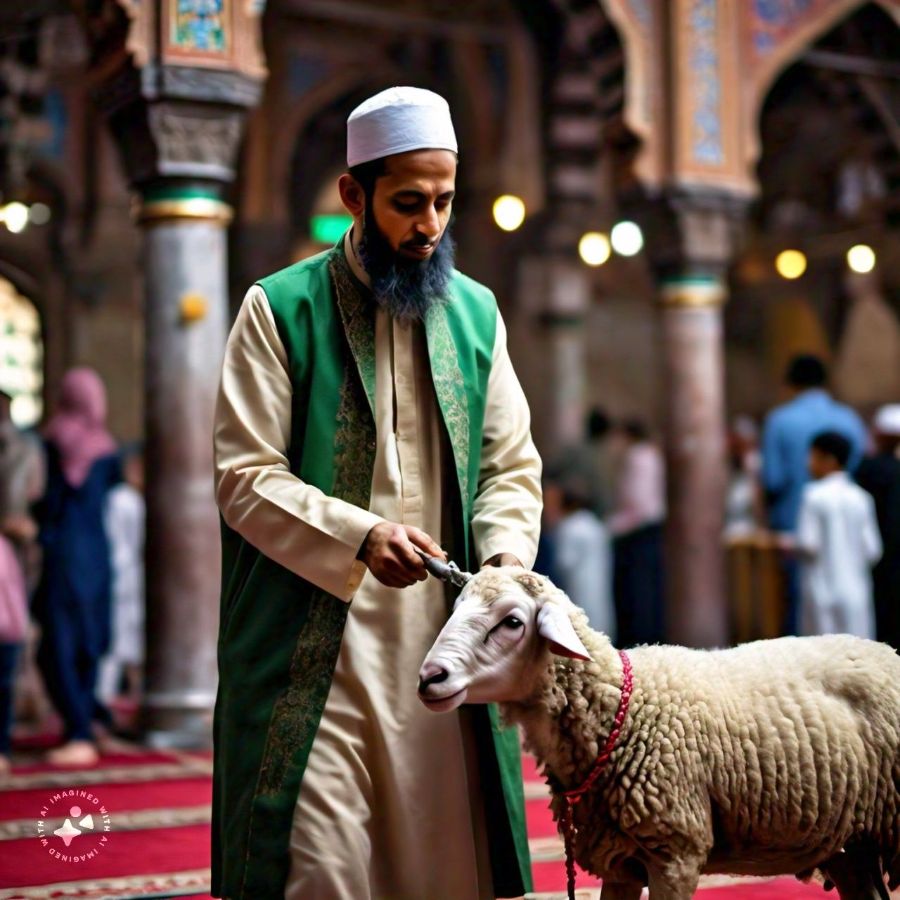
Understanding Eid-al-Adha: The Festival of Sacrifice
Eid-al-Adha, also known as the Festival of Sacrifice, is one of the most significant Islamic festivals. It commemorates the willingness of Prophet Ibrahim (Abraham) to sacrifice his son Ismail (Ishmael) as an act of obedience to Allah. The festival is a time for Muslims to reflect on their faith, sacrifice, and charity.
Significance
Eid-al-Adha is a reminder of the importance of sacrifice and obedience to Allah. The story of Prophet Ibrahim and his son Ismail teaches Muslims the value of trust, faith, and selflessness. According to the Quran, Prophet Ibrahim had a dream in which he saw himself sacrificing his son. Believing that the dream was a command from Allah, he decided to fulfill it. However, just as he was about to sacrifice Ismail, Allah intervened and replaced Ismail with a ram, saving the young boy's life.
This story is a powerful reminder of the importance of submission to Allah's will and the value of sacrifice. Muslims believe that Prophet Ibrahim's willingness to sacrifice his son was a testament to his unwavering faith and trust in Allah. Eid-al-Adha is a celebration of this faith and trust, and it is observed by Muslims all over the world.
Traditions
Here are some of the traditions associated with Eid-al-Adha:
- Sacrifice of an animal (usually a goat or sheep): This is a symbolic act that commemorates Prophet Ibrahim's willingness to sacrifice his son. The meat from the sacrificed animal is then distributed among the poor and needy.
- Distribution of meat to the poor and needy: This is an important aspect of Eid-al-Adha, as it reminds Muslims of their responsibility to care for the less fortunate.
- Eid prayer and sermon: Muslims gather in mosques and prayer grounds to perform a special Eid prayer and listen to a sermon.
- Family gatherings and feasts: Eid-al-Adha is a time for family and friends to come together and celebrate.
- Gift-giving and charity: Muslims are encouraged to give gifts and charity during Eid-al-Adha, as a way of showing compassion and generosity.
- Visiting relatives and friends: Muslims visit their loved ones and strengthen their bonds with them.
Dates
Eid-al-Adha is celebrated on the 10th day of Dhu al-Hijjah, the 12th month of the Islamic calendar. The dates vary each year, but it usually falls in September or October.
Preparations
Preparations for Eid-al-Adha begin several days in advance. Muslims typically buy new clothes and gifts for their loved ones, and they also prepare traditional dishes such as biryani, kebabs, and haleem.
On the day of Eid, Muslims wake up early, perform a special Eid prayer, and then sacrifice an animal (if they can afford it). They then distribute the meat among the poor and needy, and gather with their family and friends to feast and celebrate.
Conclusion
Eid-al-Adha is a festival that embodies the values of Islam: sacrifice, obedience, compassion, and generosity. It's a time for Muslims to come together, reflect on their faith, and strengthen their bond with Allah and with each other. Through their acts of charity, gift-giving, and sacrifice, Muslims demonstrate their commitment to their faith and their community. Eid-al-Adha is a powerful reminder of the importance of faith, family, and compassion, and it is a celebration that brings joy and happiness to Muslims all over the world.

